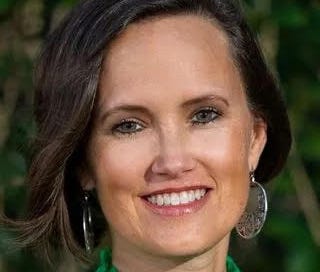Pain Is Inevitable. Suffering? A Choice.
Codependency, Courage, and Coming Home to Yourself for Allison Briggs.
What does it look like to rebuild your life, not once, but over and over? And then to use that story to guide others out of their own darkness?
That’s what I learned from my UnLost Cause conversation with Allison Briggs.
Allison is a licensed therapist, a writer, and a mother of two. But those labels don’t come close to telling the full story. She grew up in the midst of trauma: kidnapped by a parent, abused by a stepparent, tossed between homes, and attending 15 schools before graduating. She lived through what most would consider unlivable. Yet somehow, a spark stayed alive inside her.
That spark became her UnLost Cause. And after 40, she finally gave it the space to blossom.
In her 40s, Allison left a stable school district counseling job, opened her own trauma-informed therapy practice, and picked up the pen again to write the memoir she had started in her twenties.
But her story isn’t linear or glossy. It’s jagged, vulnerable, and real.
🔥 My Top 5 Takeaways from Allison’s Journey
1. Pain is part of life, but suffering is resistance.
While serving in the Peace Corps in rural Thailand, Allison’s Buddhist friends introduced her to a radical truth: pain is inevitable, but suffering is optional. At first, she resisted this idea. She had endured more than her fair share of hardship. Why would life promise only more pain?
But as her friend explained, suffering comes not from pain itself, but from our attempts to deny it, fix it, or run from it. When we accept pain as part of the human condition, we free ourselves. This became a core principle of her healing and her work.
2. Codependency is not weakness. It’s adaptation.
Allison defines codependency through the nervous system: "I need you to be okay so that I can feel safe.” It’s a pattern born of survival, not character flaws.
It’s how a child learns to regulate in a world that doesn’t feel safe. And if we never question those patterns, they silently shape our entire lives. Now, she helps women recognize those patterns, name them, and gently release them.
3. Dreams don’t die. They wait.
As a child, Allison had two dreams: to help others heal and to share her own story through writing. But survival came first. She chose teaching for stability. Later, she became a school counselor. She wrote hundreds of pages of a memoir and then shelved them. For years, her dreams waited. But they never disappeared.
Only when her pain became too loud to ignore, through a failing marriage, raising a special-needs child, and feeling silenced in her work, did she finally listen to those long-muted whispers and take action.
4. Shadow work is the path to wholeness.
Through brainspotting and deep trauma therapy, Allison began to meet the parts of herself she had long rejected…her insecurity, her softness, her fear. These weren’t enemies. They were exiled parts of her younger self still longing to be loved.
When she embraced them, her physical pain began to ease. Her voice became stronger. “The more I own my flaws, the less anyone else can use them against me,” she told me. “No one can own me anymore because I own myself.” I got goosebumps when Allison shared those phrases.
5. Success isn’t fast or a straight line.
There was no viral moment or quick wins. Allison’s business grew because she built trust through one honest conversation, one trusting client, one vulnerable blog post at a time.
She didn’t rush. She didn’t pretend to be something she wasn’t. She refused to overpromise and showed up with humility. Embrace those setbacks because they are truly guideposts that are here to teach and refine your next step forward towards your goal.
💬 Final Reflection
Allison is still writing her memoir, now about 70% complete. But her life already reads like a book you don’t want to put down. There’s a fierce grace in her words. A quiet fire in her heart. And a message for all of us:
“You're not broken. You're becoming.”
If you’ve been carrying a dream that feels too far away, I hope Allison’s story gives you permission to pick it up again. Maybe for the first time in years. Maybe for the last time…
Because pain? That’s part of life. But what you do with it? That’s your choice.
—
📬 Please share with others because that’s how we grow the UnLost Cause community together.
🧠 Which part of Allison’s journey resonated most with you?
Reply to this post or comment—I read every message.







